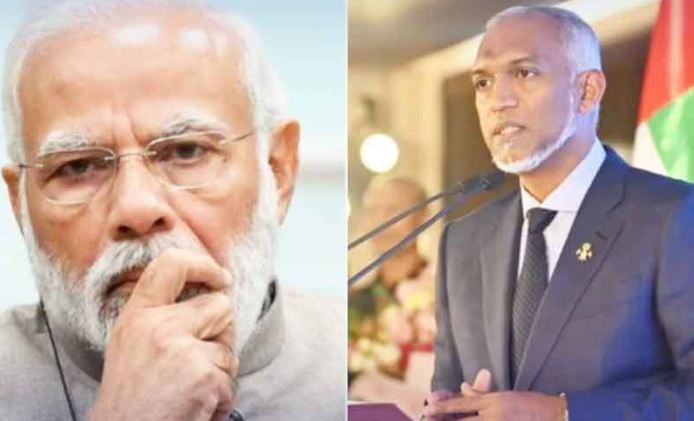Malé, JAN 14: The Maldives president has asserted that the country may be a small island nation in the Indian Ocean, but it will not be bullied, upon his return from a state visit to China where he signed a series of deals amid a row with New Delhi.
Maldives President Mohamed Muizzu emphasised the Maldives’ independence and territorial integrity while asserting the importance of strong ties with both China and India.
“We are not a country that is in the backyard of another country. We are an independent nation,” Maldives President Mohamed Muizzu told reporters on his arrival home in Male. “This territorial integrity policy is one that China respects.”
Muizzu’s comments come amid a deepening row with New Delhi after three of his junior ministers reportedly called Indian Prime Minister Narendra Modi a “clown” and a “terrorist” in now-deleted social media posts.
This incident has triggered calls for a boycott of the Maldives by some Indians, including Bollywood actors and cricket legends, though Muizzu assured that tourism, a vital sector for the Maldivian economy, will not be affected with Indians making up the largest share of foreign arrivals.
Muizzu was elected in September after pledging to cultivate “strong ties” with China and eject Indian troops. “We may be small, but that doesn’t give you the license to bully us,” Muizzu said further.
The deals signed with China focus on “infrastructure construction, medical care and health care, improvement of people’s livelihoods, new energy sources, agriculture, and marine environmental protection”.
“Longstanding China-Maldives relations are built upon an exemplary model of mutual respect,” Muizzu’s office said.
Muizzu highlighted China’s respect for the Maldives’ territorial integrity and vowed to diversify the country’s reliance on other nations for healthcare and medicine away from India, specifically mentioning the United Arab Emirates, the United States, and European countries. This move away from India’s domination in these sectors appears to be an attempt to reduce dependence on any single country.
However, Muizzu’s efforts to maintain a neutral stance face domestic challenges. The recent electoral defeat of his party’s candidate in a key by-election suggests that pro-Indian sentiment still holds considerable sway in the Maldives.
Navigating the complex geopolitical landscape between China and India will be a delicate task for Muizzu. Balancing economic relations with both countries while upholding the Maldives’ independence will be crucial for the island nation’s stability and future prosperity.
This report has been rephrased in a news report style, focusing on factual information and avoiding inflammatory language or bias.

















